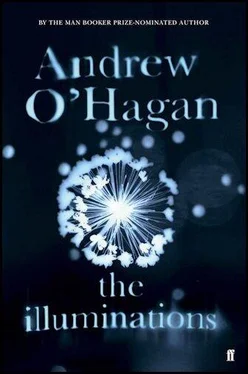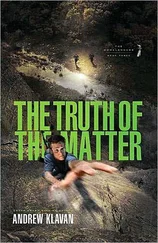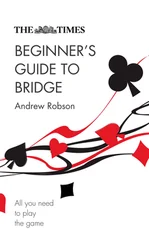THE MUSEUM OF HARRY
Anne talked about him with the kind of deference that keeps its own counsel against the living. There was nobody wiser than Harry. And he did look like a man in charge, peering from holiday snaps taken on the Isle of Arran. They weren’t snaps, actually, but carefully taken photographs, developed, printed and framed with love, and they tended to involve the sky or the sea or a beautiful mixture of both. The one hanging over the telephone table showed the Pladda lighthouse at the end of a field of blue-bells, and by her bed she had Harry sitting near a loch. He was smoking a pipe and looking down at a model aeroplane in his hands. His smile was a private note to Anne. They might have been hiding out from the world.
‘I owe everything to him,’ she once said.
‘Is that right?’
‘My history begins with Harry.’ She looked happy to say it.
‘That can’t be true,’ Maureen said. ‘What about everything else? Your childhood and your career?’
‘It began again with him. That’s how it felt.’
Maureen didn’t know what she was looking at in the photographs but she was certain they showed contentment. She herself had never been with a man with that kind of patience. The longer she looked at the photographs the more she could tell Harry was a generous person who had wanted to bring out Anne’s intelligence. Maureen had seen things like that on television and it was lovely to think about. She looked out the window and imagined the coast was filled with Harry.
He had never lived in Saltcoats. It seemed he had died in the 1970s, but the details were sketchy and Maureen felt it would test Anne’s patience to ask for more information. It didn’t matter.
It was just nice to know there were men like that in the world. ‘This one’s my favourite.’ Maureen picked up a black-and-white portrait from the 1950s. It showed a man in a short-sleeved shirt sitting at a bar with a bottle of beer in front of him and an empty camera case. A monkey was eating nuts out of his hand. ‘Exotic,’ Maureen said. The man was young in the picture and so was the Queen in a poster tacked to the wall behind him.
‘That’s my Harry at his best,’ Anne said. ‘He was serving with the army in Singapore.’
‘But that’s an English bottle of beer.’
‘It’s Singapore, Mrs Ward.’
Maureen knew when to let things go. A full bowl of soup sat between them and Anne stared at it as if she was remembering something important. ‘Don’t drive tonight,’ she said. And when Maureen told her she didn’t have a car Anne just looked blank and said, ‘That’s true.’
It was around New Year that Maureen had first noticed Anne getting mixed up about dates. At Lochranza Court they often saw the onset of dementia, but with Anne it was different because she appeared to be trying to climb out of herself before it was too late. Whatever vessel Anne had sailed in all her life, it began to drift and that was the start of it all. She rolled into a darkness where everything old was suddenly new, and when she returned to the surface her life’s materials were bobbing up around her. ‘We all have flotsam, Mum,’ said Esther on the phone. (Esther was a therapist.) ‘No matter how we weight it and sink it to the bottom, it comes loose. And that’s what’s happening to your nice lady next door.’
THE RABBIT
Maureen poured the soup away and her neighbour sauntered over to stare at the bright red splashes in the sink. Anne spoke about a book she and her grandson once read. He was doing it at university and she bought a copy. She couldn’t remember the book’s name but the man in the story was Sergeant Troy and he wore a nice red coat. Maureen washed the bowl and was quietly amazed.
Anne sat on the sofa. She looked at the window, her hands neatly clasped in her lap. ‘The rabbit was out there in the cold,’ she said. ‘He was by himself in the middle of the road.’
‘When?’
‘At Christmas. The snow was falling. Nice, if you like snow. But rabbits don’t.’
‘Don’t they?’
‘No. Not a bit. Or the dark. They don’t like the dark. They like to be out playing with the other boys.’ Anne said she’d been standing at the window not doing anything, just looking into the road, and she saw the rabbit come from the dark at the top of the shore. ‘It came from the bandstand where the Punch and Judy thing used to be.’
‘Just there, beside the beach?’
‘That’s right,’ she said. ‘And it just hopped up the road. I was watching it. And you know what, Maureen? It stopped and looked at me. Just looked. Then it kept going. Disappeared.’
‘Just like that?’
‘Just like that through the snow.’
Maureen had finished washing up and she leaned on the breakfast bar with both hands. ‘Don’t think about it,’ she said. ‘You had better get some sleep or you’ll be shattered tomorrow.’
‘But he’s all right now. He likes it here.’
Maureen got her friend into bed and closed the blinds. Anne wanted the rabbit on the wicker chair but Maureen said no and got an unhappy look. ‘You’re not in charge,’ Anne said, leaning back. She stared into the corner at a pair of old suitcases and recalled the day one of the cases was sitting on the station platform at Preston. It was a long time ago. It was raining. She stood that afternoon and looked back at the Park Hotel, where she’d just had tea with Harry and he’d told her about his other life. He drove back to Manchester and she waited for the train to Blackpool, her heart racing, the suitcase filled with negligees and film spools.
I’ve got the flat for good, Harry. And all the beakers are there and the safelights. All the solutions. Paper. Everything we need. It will do as a darkroom but a place to stay as well. It will just be ours. We can spend the night, in the summer.
‘Go to sleep, Anne,’ Maureen said.
‘You’re not the boss.’
Before closing the door, Maureen looked at a picture of a handsome young man in uniform that hung above the light-switch. ‘That’s Luke,’ Anne said, her eyes shining.
‘He’s a fine boy.’
‘He’s a captain in the British army.’
SALTCOATS
Maureen went out every day to buy milk. On her way to the Spar she passed the empty boating pond and looked over to Arran; it was nice to be out in the fresh air; the island was clear and
romantic, like one of those pictures you could buy for over the sofa. The mountains were covered in snow and the top of Goat-fell looked dangerous, as if the man in the Milk Tray advert was about to come down on his skis. She used to like that man in the black polo-neck who raced down mountains and dived off cliffs to bring the lady a box of chocolates. In the summer, Arran was a totally different place because the hills were brown and cheery and if the sky was blue it seemed the whole island was close enough to touch.
Maureen considered herself the warden’s deputy. It wasn’t a real job or anything like that but she could help the older ones with their laundry. She watered the plants and went for the milk, tasks that gave her a feeling of usefulness she had missed. When Ian, Esther and Alex were children she seldom had a minute to herself. If she wasn’t ironing shirts she was filling in school forms or making beds, or cooking. But people looked after their kids in those days. You put in the work and enjoyed their young years. Not like nowadays when everybody’s harassed and the mothers line up at the school gates in their giant jeeps. Her three walked to school. But by the time Esther was fifteen it was all over with the parenting. Finished. And one by one they left the house with their LPs and their T-shirts. That’s what happens, Maureen thought. That’s how it is. You kill yourself looking after them and then they get up and leave you.
Читать дальше











